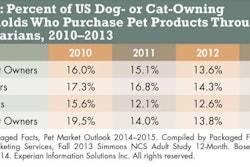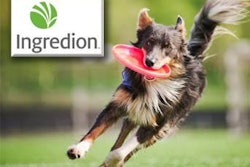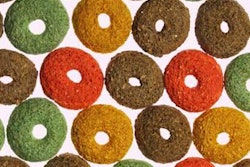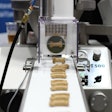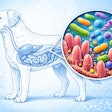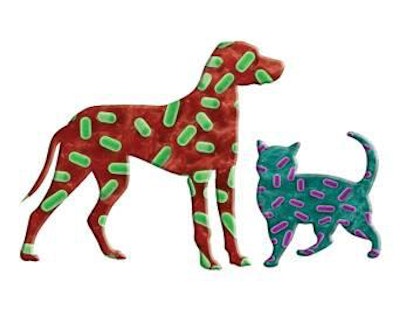
Probiotics continue to remain a functional additive in petfoods and are making their way from their now comfortable spot in over-the-counter supplements to new products like cat treats, alternative ingredient premixes and an entire line of puppy to senior dog food. There has been extensive research done to prove these additives like prebiotics, probiotics and other digestive enzymes have beneficial effects on digestive health. Plus, we already know that pet owners are more proactive than ever with their pet's health, and probiotics are definitely on their shopping radar.
According to Dr. Donna Spector, DVM, DACVIM, consulting veterinarian for Halo, Purely for Pets, consumers should look for the labels FOS (fructooligosaccharides), inulin (a type of FOS), GOS (galactooligosaccharides) or TOS (trans-galactooligosaccharides). These prebiotics have been studied extensively and have been proven beneficial in pets. Pet parents should look for species of Lactobacillus, Bifidobacterium and Enterococcus to indicate the inclusion of probiotics in a packaged petfood. While some petfoods include only one or the other, foods that supply both a prebiotic and a probiotic provide maximal digestive health benefits, says Dr. Spector, because feeding both gives pets the advantage of a maximally improved intestinal bacterial population, improved stool quality and enhanced nutrient absorption. There have been no side effects or adverse reactions reported with long-term feeding of these products, states the Halo, Purely for Pets website.
Dogs and cats prone to digestive sensitivity, like soft stool, gastrointestinal distress or diarrhea, may benefit tremendously from a food containing prebiotics and probiotics. According to Dr. Spector, many of these pets have inflammation within their small intestine, which causes bacterial overgrowth or a problem called antibiotic-responsive diarrhea. Traditionally, antibiotic therapy was the only option for these pets, but a recent study showed that dogs given a prebiotic responded as well as those treated with antibiotics, and they didn't have a tendency to relapse with diarrhea if the prebiotic was continued.
Ganeden Biotech’s probiotic, GanedenBC30 (Bacillus coagulansGBI-30, 6086), is a patented organism that can be found in companion animal products, like Fido BellyBones dog treats, Healthy Goo Doggy Goo, Healthy Goo Gut Rescue, Leanlix Lickable dog treats, Pet Naturals Daily Digest Dog Chews, Vetri-Science Laboratories UT Strength Canine and Feline Bite-Sized Chews, and Vetri-Science Vetri-Probiotic Everyday Bite-Sized Chews. Unlike many other probiotic strains used in petfoods, GanedenBC30 is highly stable and can remain viable through processing, shelf life and the low pH of stomach acid, says the company. The efficacy of GanedenBC30 is backed by 17 peer-reviewed published studies, and it has an exceptional safety record with "GRAS" status from the United States Food and Drug Administration (FDA). It can be formulated into virtually any product that is baked, frozen, extruded or processed, claims Ganeden Biotech.
Furthermore, in an abstract published in the World Journal of Gastroenterology in 2012, researchers set out to study the effects of probiotic metabolites on the maturation stage of antigen-presenting immune cells. Ganeden Bacillus coagulans 30 (GBC30) bacterial cultures in log phase were used to isolate the secreted metabolite (MET) fraction. A second fraction was made to generate a crude cell wall-enriched fraction, by centrifugation and lysis, followed by washing. Activities were tested in comparison to crude MET and cell wall in primary cultures of human peripheral blood mononuclear cell (PBMC) as a source of antigen-presenting mononuclear phagocytes. The researchers concluded that the treatment of PBMC with MET supported maturation of mononuclear phagocytes toward both macrophage and dendritic cell phenotypes. The biological activity unique to the metabolites included a reduction of CD14+ CD16+ pro-inflammatory cells, and this property was associated with the high molecular weight metabolite fraction. The data showed that a primary mechanism of action of GBC30 metabolites involves support of more mature phenotypes of antigen-presenting cells, important for immunological decision-making. Read the full study at: https://www.ncbi.nlm.nih.gov/pmc/articles/PMC3337562/.
A large breed dog weighing 65-70 pounds needs up to 1.5 pounds of beneficial bacteria in its gut to protect against disease and illness, according to NWC Naturals Pet Products and makers of Total-Biotics. Studies have shown that over time, the body becomes less efficient at digesting food and maintaining high levels of probiotics in the intestines. If an animal does get sick, more concentrated forms of probiotics can help the animal recover.
Total-Biotics is, according to PetEnzymes.com, the only pet probiotic formula in the world that uses the patented stabilized glutamine MGG chelate from Albion Labs. This stabilized glutamine utilizes anabolic nitrogen molecules to help cleanse and fortify a companion animal’s body, says the company. Glutamine yields beneficial effects on the intestinal mucosa and is also the major metabolic fuel for the small intestine. Also included in this formula is Inulin IQ FOS (fructooligosaccharides). FOS is known to promote the growth of beneficial bacteria in the gastrointestinal tract and has been shown to stimulate growth of Bifidobacterium in the colon facilitating good colonization.
